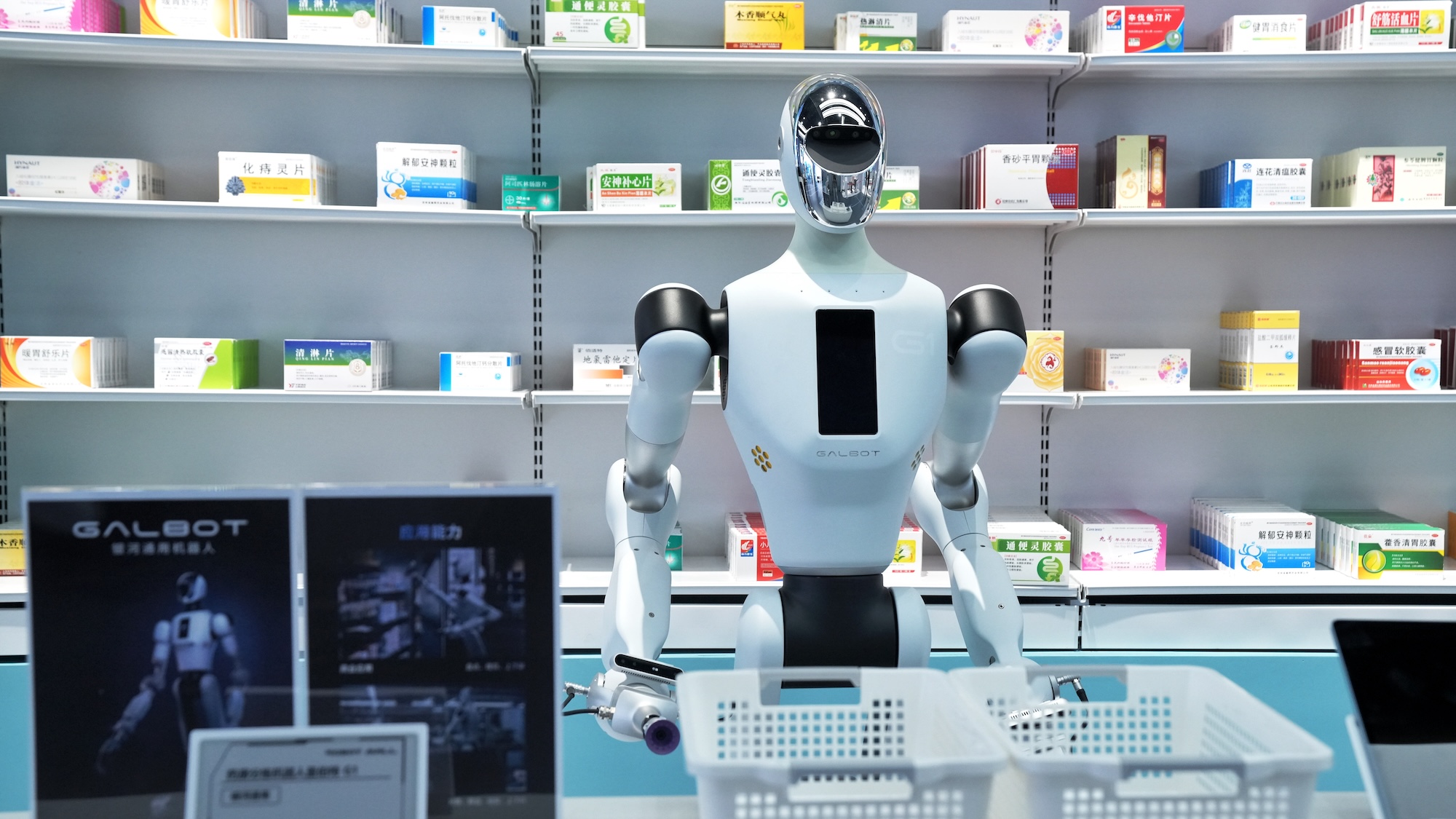The jobs most at risk from AI
The rise of artificial general intelligence could radically transform the job market

A free daily email with the biggest news stories of the day – and the best features from TheWeek.com
You are now subscribed
Your newsletter sign-up was successful
Google has set out its next steps in developing artificial intelligence which could eventually be able to complete real-world tasks at the same level as humans.
The tech giant's DeepMind AI division is working towards artificial general intelligence (AGI), a theoretical level of AI that can carry out tasks autonomously. To do this, DeepMind is using a new "world model", Genie 3, a simulated environment that can help train AI agents like robots with realistic replicas of situations and environments.
The company said it expected Genie 3 to play a "critical role as we push toward AGI" and the prospect of AI taking on more real-world jobs. AGI is often "viewed through the prism of potentially eliminating white-collar jobs", said The Guardian, and changing the workforce as we know it.
The Week
Escape your echo chamber. Get the facts behind the news, plus analysis from multiple perspectives.

Sign up for The Week's Free Newsletters
From our morning news briefing to a weekly Good News Newsletter, get the best of The Week delivered directly to your inbox.
From our morning news briefing to a weekly Good News Newsletter, get the best of The Week delivered directly to your inbox.
How far away is AGI?
The AI market is increasingly competitive, with tech companies in a race to achieve AGI. OpenAI and Meta are among the biggest companies openly pushing the development of AGI, the latter assembling a taskforce for what it is calling "personal superintelligence", which CEO Mark Zuckerberg said was "now in sight".
When AGI will actually be achieved is unclear, however. Google has suggested it could arrive at the start of the 2030s, while other experts predict it will be the second half of this century.
The differing predictions are because there is "no universally accepted definition of AGI", and tech firms are using "different benchmarks to measure whether they’ve achieved their own definition of AGI", said BuiltIn.
There is agreement, though, that it will eventually happen and have a significant impact on jobs, with companies like Amazon already suggesting it will cut its workforce as AI provides more and more "efficiency gains".
A free daily email with the biggest news stories of the day – and the best features from TheWeek.com
What kind of jobs are most at risk?
A report from Microsoft shed some light on the kind of jobs that may disappear as AGI develops, suggesting that "knowledge work" – jobs in "computer and mathematical, and office and administrative support" – will be the main ones under threat. It also said that sales work where the main part of the role is "providing and communicating information" could be replaced by AI.
The report listed 40 roles that are most likely to be affected by AI, with five including interpreters and translators, historians, passenger attendants, sales representatives, and writers and authors. Jobs least at risk were also outlined, which include largely manual occupations such as dredge operators, bridge and lock tenders, water treatment plant and system operators, and foundry mould and coremakers.
The rise of AI will also create other jobs to assist it, like engineers who manage the AI and the data it uses to function.
Is it already happening?
Some data suggests that AI has already been responsible for job losses, mostly in the technology industry. According to a report by US outplacement company Challenger, Gray & Christmas, since 2023 there have been 27,000 job cuts in the US directly linked to AI.
But other data suggests that AI has yet to begin taking over "entry-level jobs in knowledge-intensive industries", said The Economist. Unemployment among US graduates who take these kinds of jobs remains low, while the "share of employment in white-collar work has risen very slightly", despite these being the kind of jobs touted to be taken over by AI.
Relatively stable low unemployment and steady wage growth data also suggest AI is yet to seriously bite in the jobs market. This could be because companies are yet to adopt AI for "serious work", and if they do use AI, they do not necessarily cut jobs, instead "AI may simply help a worker do their job faster, rather than making them redundant."
Richard Windsor is a freelance writer for The Week Digital. He began his journalism career writing about politics and sport while studying at the University of Southampton. He then worked across various football publications before specialising in cycling for almost nine years, covering major races including the Tour de France and interviewing some of the sport’s top riders. He led Cycling Weekly’s digital platforms as editor for seven of those years, helping to transform the publication into the UK’s largest cycling website. He now works as a freelance writer, editor and consultant.